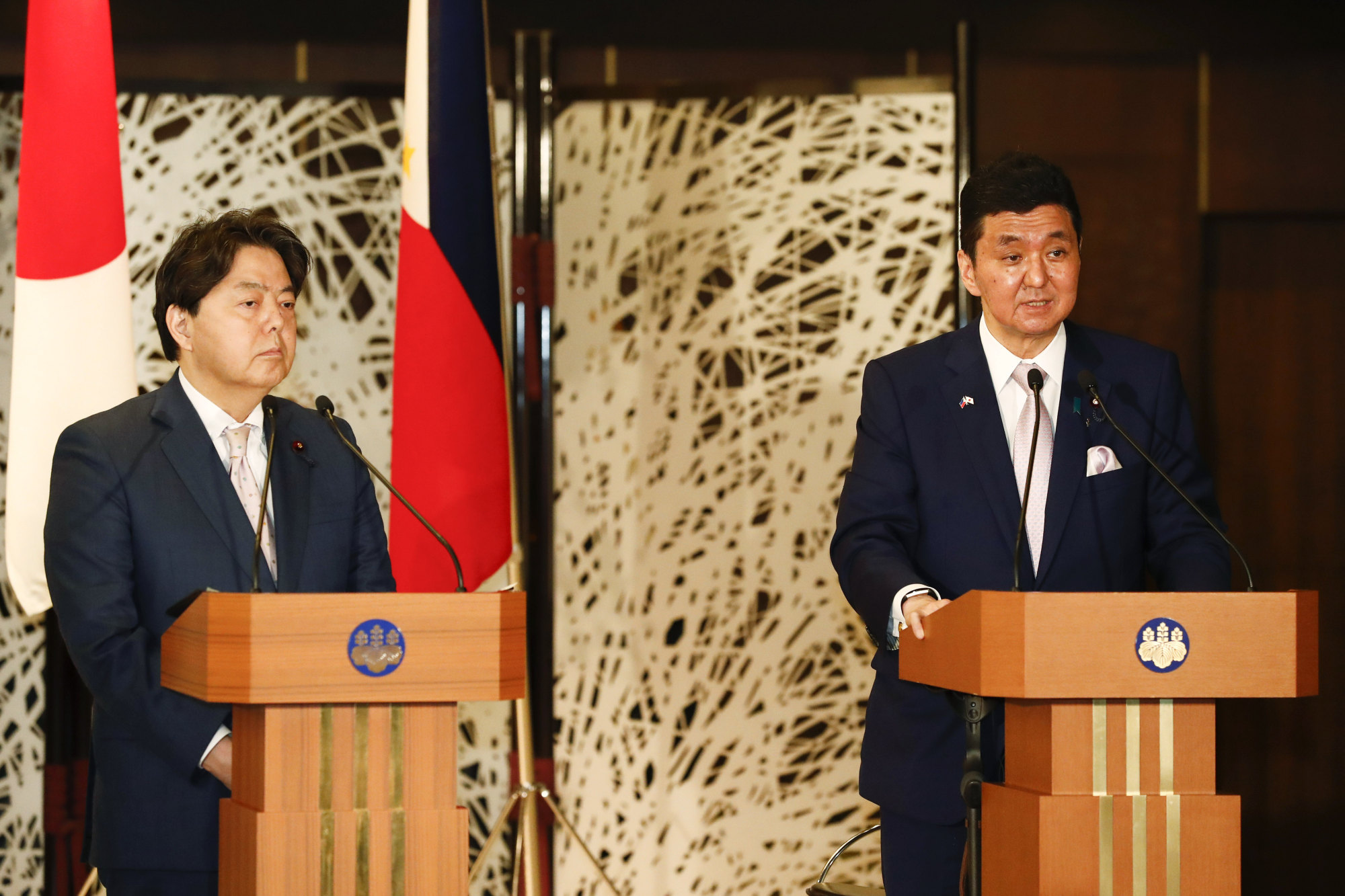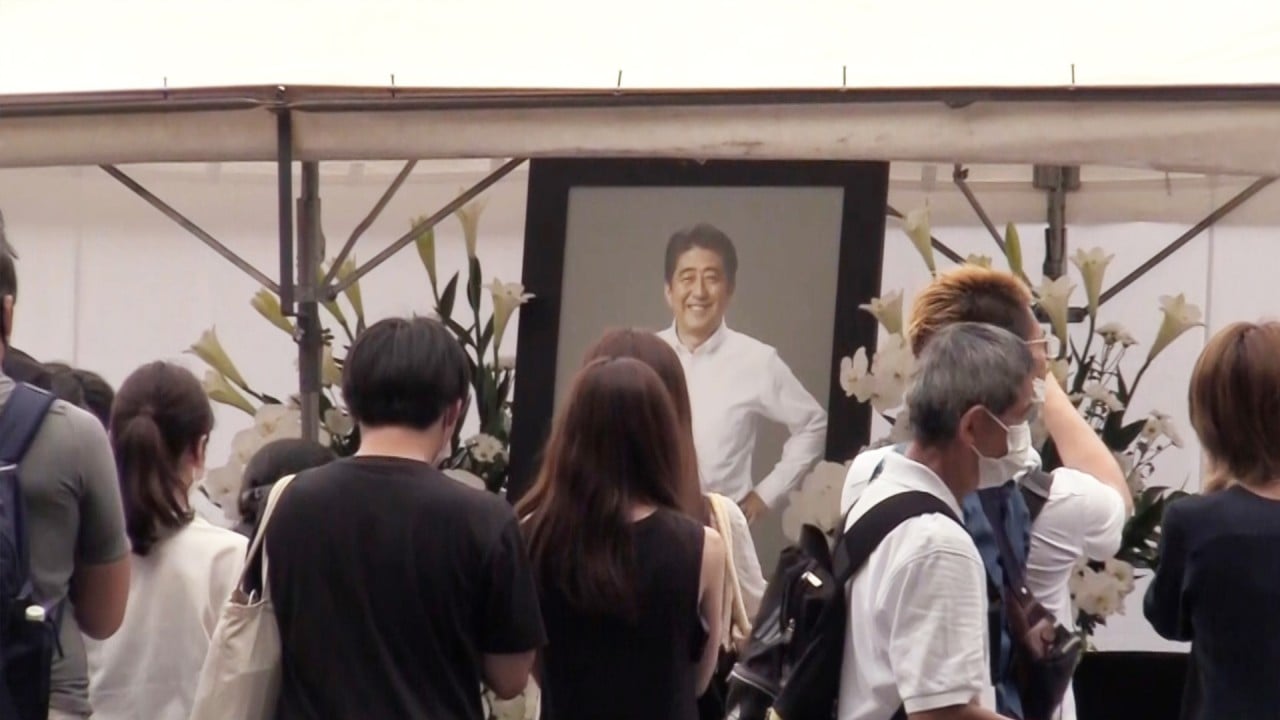
Is Japan’s cabinet reshuffle linked to Unification Church or a ‘purge’ of Abe loyalists?
- Fumio Kishida’s culling of several high-profile cabinet members with ties to the religious organisation includes Nobuo Kishi, brother of the late Shinzo Abe
- Attempts by the PM to dispel concerns the church has any influence over government have been described by some observers as ‘hypocritical’ and ‘an excuse to purge’
Koichi Hagiuda, who has also confirmed that he gave a guest speech at an event linked to the Unification Church, lost his role as industry minister. Instead of leaving the ranks of the leadership entirely, Hagiuda was moved to the post of policy chief for the ruling Liberal Democratic Party. It is, however, seen as a downgrade on his previous role.
Kishida’s removal of several high-profile members of his administration has nevertheless proved controversial.
Many in the party have welcomed the departure of ministers with any hint of a link to the Unification Church as a decisive move that will dispel public concerns that the religious organisation has any influence over government.
Others say that Kishida, a moderate in the conservative LDP, has used the situation to rid his administration of a number of ministers who were ideologically close to Abe.
The former prime minister was far more of a hawk, even after he stepped down as prime minister and returned to the backbenches in September 2020, and it has been widely suggested that Abe was opposed to Kishida’s more centrist positions on issues, particularly when it came to foreign affairs and defence.
I see this reshuffle as the product of a media circus surrounding the church at the moment and criticism from opposition parties taking advantage of the situation
Yoichi Shimada, a professor of politics at Fukui Prefectural University, described Kishida’s decisions as “inappropriate and unnecessary because the Unification Church has never had a significant influence on the LDP”.
“I see this reshuffle as the product of a media circus surrounding the church at the moment and criticism from opposition parties taking advantage of the situation – which is hypocritical as many opposition politicians also welcomed the support of the Unification Church before Abe’s assassination,” Shimada said.
“I believe Kishida has used the outrage over Abe’s death and suggestions that certain politicians had links to the church as an excuse to purge the cabinet of some of Abe’s closest political allies,” said Shimada. “Hagiura is a very good example of this; he had a very important position in the cabinet and was a close colleague of Abe, but now he has been sidelined.”
Shimada added that there are “more obvious” instances in which religious groups were exerting pressure over political parties and attempting to advance their own agendas, not least Komeito, the political party allied with the LDP in government and tied to the Sokka Gakkai religious group.

Ken Kato, a Tokyo-based businessman and grassroots member of the LDP, said Kishida was right to shuffle the cabinet and that it was “a good opportunity to demonstrate that the cult of the Unification Church has no influence on the government”.
“When I was at university, more than 30 years ago, the Unification Church and other similar groups were very common on campuses and it was at about this time that they started sending ‘volunteers’ to help politicians during their election campaigns,” he said.
“For the politicians, it was very helpful as they worked hard and did not need to be paid, but this is the root of the cult’s involvement in politics here,” said Kato. “Once they had made those connections, they have kept a lower profile, I believe, but they have always been focused on increasing their influence.
“Personally, I do not believe the church was able to ‘control’ politicians or affect policy, but they are citizens with a vote in elections so no party could afford to alienate them,” he said. “I believe LDP politicians were happy to accept their help and be photographed shaking their hands, but it would not have gone much further than that.”
Abe’s killing spotlights South Korea’s Unification Church ties with Japan
A report in the Mainichi newspaper on Tuesday may undermine that suggestion.
It reported that “many similarities” had been found in the papers put forward by the LDP for reforms to the constitution and the manifesto of a political group with links to the Unification Church called the International Federation for Victory over Communism.
In an April 2017 video released by the federation, it proposed the introduction of an “emergency clause” in the constitution that would come into effect in the event of a major natural disaster or war and would grant the government sweeping powers. In an outline of possible alterations to the constitution unveiled by the LDP in April 2012, it proposed similar powers over the public.
The federation also emphasised the family unit, adding that without the family, “same-sex marriage, which cannot result in a natural and fundamental unit, will spread”. The LDP’s proposal stated: “The family is to be respected as the natural and fundamental unit of society”.
Both the federation and the LDP expressed support for “national defence forces”.


